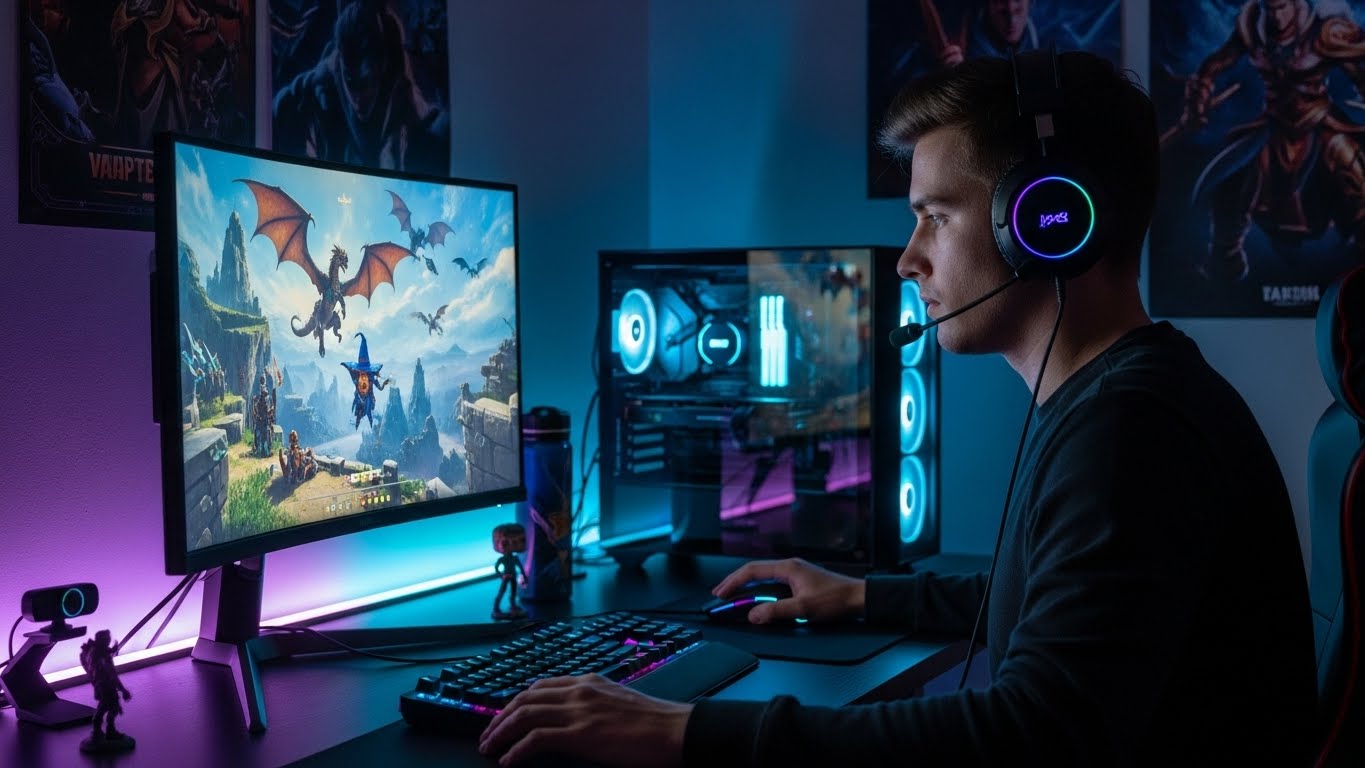Introduction: The Growing World of Gaming
Gaming has transformed from a simple pastime into a major cultural and entertainment phenomenon. What started as basic arcade and console games has evolved into immersive digital worlds that challenge creativity, strategy, and collaboration. Today, gaming is not only a form of entertainment but also a platform for learning, social interaction, and professional opportunities.
The Evolution of Gaming
The history of gaming is a story of innovation and technological advancement. Early video games were simple, pixel-based experiences, yet they sparked the imagination of millions. Over the decades, gaming has expanded into high-definition graphics, virtual reality, and online multiplayer platforms. From consoles to mobile devices, gaming continues to push the boundaries of storytelling and interactive entertainment.
Gaming as a Social Experience
Modern gaming has become a social activity. Online multiplayer games and cooperative challenges allow players to communicate and collaborate with others globally. Communities form around shared interests, creating friendships and fostering teamwork. Gaming connects people across cultures, languages, and continents, proving that digital play can build real-world connections.
Cognitive Benefits and Skill Development
Gaming is not just fun; it has cognitive and educational benefits. Strategy games enhance problem-solving and critical thinking, while action games improve hand-eye coordination and reflexes. Role-playing games encourage creativity, decision-making, and strategic planning. Many games also teach leadership, communication, and teamwork—skills that translate into daily life and professional settings.
The Economic Impact of Gaming
The gaming industry is now a multi-billion-dollar global market. Esports has emerged as a professional career, with tournaments offering substantial prizes and sponsorships. Game development, streaming, and content creation have opened new career paths for millions. Beyond entertainment, gaming has become a significant contributor to the digital economy.
Challenges in Gaming
Despite its benefits, gaming faces challenges such as excessive screen time, online toxicity, and addiction. Ethical issues like in-game purchases and exposure to inappropriate content also require attention. Encouraging responsible gaming habits, promoting safe online environments, and balancing playtime are essential to ensure a positive experience for all players.
The Future of Gaming
The future of gaming is bright and full of innovation. Technologies such as augmented reality, virtual reality, artificial intelligence, and cloud gaming are making games more immersive and accessible. New genres, cross-platform play, and inclusive gaming communities are expanding the audience. As technology advances, gaming will continue to redefine entertainment, education, and social interaction.
Conclusion: Gaming as a Force for Connection and Growth
Gaming is more than just entertainment—it is a tool for creativity, learning, and social connection. It challenges players, builds skills, and fosters communities across the globe. From casual players to professional competitors, gaming continues to shape modern culture and will remain an influential part of human life for generations to come.



